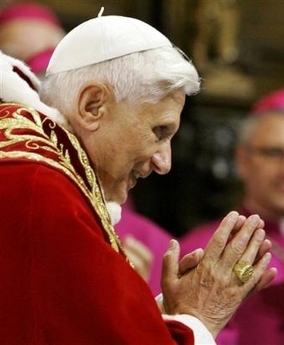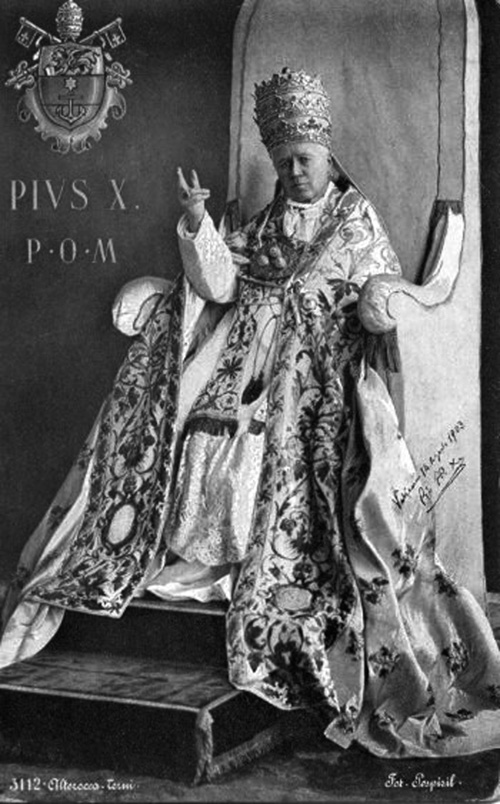Malaysia has 2 judicial systems, the civil courts and the Shariah courts which are supposed to concern itself with Muslim affairs. Problems arise when overlap of jurisdiction occurs and the civil courts defer to the Shariah courts thereby referring and putting non-Muslims under it's jurisdiction. Problems also arise when one wishes to renounce Islam because you need the Shariah court order to do so but if you renounce Islam, then you should not be subject to the Shariah court.
The current situation is ridiculous and an outrage. The Federal Constitution guarantees religious freedom but we all know its a sham. It is now legally a sham.
Can't comment fully. Don't have the time. But here's the news.
Lina Joy loses appealPUTRAJAYA: Lina Joy lost her final round of appeal when the Federal Court dismissed on Wednesday her appeal against a ruling that the National Registration Department was right not to allow her to remove the word "Islam" from her identity card.
Chief Justice Ahmad Fairuz Sheikh Abdul Halim and Federal Court judge Justice Alauddin Mohd Sheriff delivered the majority decision dismissing her appeal.
Chief Judge of Sabah and Sarawak Justice Richard Malanjum dissented.
On Sept 19, 2005, the Court of Appeal decided that the NRD director-general was right in refusing her application to drop her religious status from her IC on the grounds that the Syariah Court and other Islamic religious authorities did not confirm Linas renunciation of Islam.
Among the idiotic, despotic and draconian comments are such as these:
Counsel: Islam can’t be renounced at willPUTRAJAYA: Lina Joy cannot become an apostate at will as she is subjected to the dual legal system, namely the civil courts and the Syariah Courts as well as the Syariah laws practised in this country.
Senior Federal Counsel Datuk Umi Kalthum Abd Majid, who appeared for the Government and the NRD director-general, said this was because Lina is still a Muslim, unlike a non-Muslim who is only subjected to the civil courts.
“The issue of renunciation is a matter pertaining to the akidah (faith) of a Muslim transgressed into the realism of the Syariah Law, which needs serious consideration and proper interpretation of such laws,” she said.
“As such, only the Syariah Court and/or bodies are qualified to make such a determination.” [If you renounce Islam, they re-educate you in camps like the recent case where the mother was separated from her baby because she had embraced Hinduism, the religion of her husband.]
Umi added that a proper determination of the status of the purported renunciation of Islam by Lina, being a Muslim, is important as the determination will take her out of the application of the Syariah Laws and out of the jurisdiction of the Syariah Courts.
She said there was no relevance to make references to Article 11(1) of the Federal Constitution, as Lina was not prohibited from renouncing her religion.
“The issue here is that, in order to renounce Islam, she must go to the proper channels as provided by law and she cannot renounce her religion, Islam, at will,” she said.
Substitute Islam for Christianity or some other religion and you'll see their faulty logic. Supposed to renounce Islam one needs to Bishop's permission (not that it would not be granted but...). imagine that. Let there be no compulsion is religion my a**. Is this is not compulsion, aside from holding a sword to your throat (which they are not above doing, by the way), then I don't know what is.
Here's the history behind this case.Crucial decision in Lina Joy case
KUALA LUMPUR: The Federal Court judgment today on the Lina Joy appeal will be a historic one with legal and social repercussions, whichever way the decision goes.
This decision by the apex court will affect one’s constitutional freedom to choose one’s religion as well as who one can marry, especially for those who want to renounce Islam and for people who convert to Islam but later want to revert to their former religion.
The judgment, which was reserved on July 4 last year, will clarify whether conversion is a religious matter or a constitutional matter.
Lina Joy, 42, who was born to a Malay Muslim couple, became a Christian when she was 26.
The sales assistant has taken her case all the way to the Federal Court because unless the government recognises her conversion, she cannot get married under civil law.
While Lina managed – the second time around – to get the National Registration Department to change her name from Azlina Jailani in 1999, accepting that she had renounced Islam, it refused to remove the word “Islam” from her MyKad.
The NRD said it could not do so without a syariah court order certifying she had renounced Islam.
As long as the word “Islam” remains on her identity card, Lina cannot marry her Christian boyfriend, a cook, under the Law Reform (Marriage and Divorce) Act 1976.
In 2001, she took her case against the NRD director-general, the Government and the Federal Territory Religious Council to the High Court.
She lost – Justice Faiza Tamby Chik held that Malays could not renounce Islam because a Malay was defined in the Constitution as “a person who professes the religion of Islam,” adding it was the syariah court that had the jurisdiction in matters related to apostasy. [Utter bollocks, if you ask me.]
Lina appealed to the Court of Appeal and lost again, this time in a majority decision – Justices Abdul Aziz Mohamed and Arifin Zakaria upheld the decision of the NRD but Justice Gopal Sri Ram said it was null and void.
In 2006, she got leave to appeal to the Federal Court and asked the panel comprising Chief Justice Ahmad Fairuz Sheikh Abdul Halim, Chief Judge of Sabah and Sarawak Richard Malanjum and Federal Court Justice Alauddin Mohd Sheriff these questions:
WAS the NRD entitled to require a person to produce a certificate or a declaration or an order from the syariah court before deleting “Islam” from his or her identity card;
DID the NRD correctly construe its powers under the National Registration Regulations 1990 when it imposed the above requirement, which is not expressly provided for in the regulations?; and
WAS the landmark case Soon Singh vs Perkim Kedah – which held that syariah courts have the authority over the civil courts to hear cases of Muslims renouncing Islam – correctly decided? While Datuk Cyrus Das appeared for Lina Joy, Senior Federal Counsel Datuk Umi Khaltum Jamid appeared for the NRD director-general and the Government and Sulaiman Abdullah appeared for the religious council.
The Lina Joy case: Right not infringed on
PUTRAJAYA: Compelling a Muslim to get an apostasy order from the Syariah Court to renounce his or her religion does not infringe on a person’s Constitutional right to profess another religion, the Federal Court heard.
Sulaiman Abdullah said the Federal Territories Administration of Islamic Law Act 1994, which conferred on the religious council the power to govern Muslims, was consistent with the Constitution.
“The Act was created to smoothen the administration of Islam among Muslims so that the harmony and well-being of the community are protected,” he said yesterday.
“The provisions strike the correct balance between individual rights and the interest of public order,” added Sulaiman.
Lina Joy is appealing against the Court of Appeal’s majority decision on Sept 19, last year, which ruled that the National Registration Department director-general was right in not allowing her application to delete the word “Islam” from her identity card.
The ruling was on the grounds that the Syariah Court and other Islamic religious authorities did not confirm her renunciation of Islam.
In his submission, Sulaiman said the constitutional issue must be viewed historically.
“We have to take into account that Islam was here from the 13th century. The Malay Sultanate became Muslim and, later, its people,” he said, adding that the system was interrupted with the intrusion of colonial powers.
“The law that was applied then was Islamic law and several centuries later, Malaysia became a fully Islamic country.”
He said everything about the Malays then was governed by Islam and Malay customs. On the other hand, British law was limited and based on Christianity.
“Unfortunately, the British were the stronger party and had their way on what should be Malay customs and Muslim law,” he said, questioning the need to conform to the British legal system after the country’s independence.
Sulaiman said the Malaysian Constitution was unique in that it had a special place for Islam.
He added, however, that Muslims could not declare their renunciation of Islam without the involvement of religious authorities because there would be Constitutional repercussions.
“For instance, one may declare himself a Muslim in the morning and by the evening he is not a Muslim. Or, he is a Muslim when it’s time for zakat and not a Muslim during the fasting month,” he said.
This prompted Chief Justice Ahmad Fairuz Sheikh Abdul Halim to ask: “Are you saying that a Buddhist can be a Buddhist in the morning and a Christian in the evening?”
Sulaiman answered there was nothing to stop anyone from doing so.
He said several legal representatives of non-governmental organisations had, in their submissions last week, made attacks on the position of Islam.
“That is a total reversal of what the Government had set out to achieve,” he said.
The NGOs had supported the view of Justice Gopal Sri Ram, who gave his dissenting judgment in the Court of Appeal, that the NRD’s refusal to make the amendment in Lina’s identity card without an order or certificate from the Syariah Court was null and void.
On April 23, 2001, the High Court refused to decide on Lina’s application to renounce Islam on the ground that the Syariah Court should decide the issue.
The appeal continues today.
NRD has right to require apostasy order, says counsel
PUTRAJAYA: The National Registration Department (NRD) has an implied power to require Lina Joy to submit to it an apostasy order from the Syariah Court.
This is provided for under the National Registration Regulations, said Senior Federal Counsel Datuk Umi Kalthum Abdul Majid, adding that the implied power was necessary and appropriate for the NRD to carry out its purpose.
She said the National Registration (Amendment) Regulations 2000, which were brought into force retrospectively on Oct 1, 1999, included a provision to compel a Muslim to state his religion.
She said although the regulations were gazetted in March 2000, the NRD was allowed to place the word “Islam” on identity cards from Oct 1, 1999.
Umi Kalthum said the regulations were procedural and, therefore, could be applied retrospectively to identity cards from Oct 1, 1999. This included Lina’s application to change her name in her identity card.
“The rights of the individual, the appellant (Lina) in this case, would not be affected,” she said.
She said the contention of Lina's counsel Datuk Cyrus Das – that the NRD had tricked Lina into making a statutory declaration without revealing her change of religion in order to get her name changed from Azlina Jailani to Lina Joy – was unjustified.
“Malaysians are very helpful people and the appellant (Lina) was very anxious to make the change. That was not a proper thing to say,” Umi Kalthum said, adding that Das’ insinuation that NRD conspired to thwart Lina’s efforts could not be sustained.
Justice Richard Malanjum then interjected, “Readers’ Digest would not agree with you,” in an apparent reference to a survey in Kuala Lumpur by the publication which revealed that Malaysians were a rude lot.
Chief Justice Ahmad Fairuz Sheikh Abdul Halim allowed Federal Territory Religious Council counsel Sulaiman Abdullah to adjourn his submissions to Monday after the lawyer told the court that he was ill.
Sulaiman was not present on the first day of the appeal at the Federal Court on Wednesday as he was attending a conference.
At the end of yesterday’s proceedings, Chief Justice Ahmad Fairuz told assistant counsel Halimahtun Saadiah Abdul Rahman that if Sulaiman was still unwell she would have to make the submissions instead.
PUTRAJAYA: There will be no decision yet on Lina Joy’s appeal to the Federal Court against the Court of Appeal’s majority decision on Sept 19 last year which ruled that the National Registration Department director-general was right in not allowing her application to delete the word “Islam” from her identity card.
Chief Justice Tun Ahmad Fairuz Sheikh Abdul Halim said the three-man bench comprising himself, Chief Judge of Sabah and Sarawak, Datuk Richard Malanjum and Federal Court judge Datuk Alauddin Mohd Sheriff needed time to look into the submissions by the parties carefully because the issue was sensitive.
He said the judges had to consider the submissions of every non-governmental organisation (NGO) that was represented by counsel in the appeal.
The NGOs included the Malaysian Council for Buddhism, Christianity, Hinduism and Sikhism; Hakam, Malaysian Women Lawyers Association and National Council of Women’s Organisation, All Women’s Action Society, Sisters In Islam, Women’s Aid Organisation, Women’s Centre for Change and Women’s Development Collective.
“That is why we need to have some time. We can’t rush this thing. We have to be very careful when we write our reasons,” he said.
On July 3, the Federal Court reserved its judgment to a date to be fixed.
Lina, 42, was born Azlina Jailani to Malay parents. She was brought up as a Muslim but at the age of 26 decided to become a Christian. In 1999, she managed to change the name in her identity card to Lina Joy but her religion remained as Islam.
On April 23, 2001, the High Court refused to decide on her application to renounce Islam as her religion on the grounds that the issue should be decided by the Syariah Court.
It also dismissed her application for an order to direct the department to drop the word “Islam” from her identity card.
KUALA LUMPUR: The Attorney-General’s Chambers is mulling over the setting up of a special commission to study religious-sensitive cases like the Lina Joy matter, said Datuk Seri Nazri Abdul Aziz. The Minister in the Prime Minister’s Department said that in his opinion, the commission, if approved, should comprise the heads of various religions.
Nazri said the proposal would be submitted to the Cabinet once it was finalised.
“In my opinion, the question of conversion should be settled in an ‘extra legal manner,’ especially when children are involved,” he said.
Replying to Karpal Singh’s (DAP – Bukit Gelugor) query on why a decision had yet to be reached in the Lina Joy case, Nazri said:
“The decision is difficult to make as it is very sensitive and we have to consider the consequences. Even if it is made in the right decree, the acceptance may be difficult,” he said at the Dewan Rakyat when winding up the debate on the motion of thanks on the royal address.
Expressing hope that such a commission would find a resolution to sensitive cases, Nazri noted that the setting up of a Federal Constitutional Court was not the answer to such cases.
“Even with the Federal Constitutional Court, the judge will be of a certain faith and if he makes a decision favouring that faith, he may be labelled biased,” he said.
The Government, Nazri said, had ordered the A-G’s Chambers to study in detail issues pertaining to cases such as that of M. Moorthy and A. Rayappan, including gathering input from all sides.
“It cannot be denied that such cases have raised a lot of sensitive questions that need a deeper understanding between the races if they are to be solved permanently,” he said.
Although the Moorthy and Rayappan cases involved the conversion of a non-Muslim to Muslim, Article 121 (A) will not be amended. Nazri also said the civil court cannot interfere on matters under the jurisdiction of the Syariah Court.
He also said Syariah laws would not be forced upon non-Muslims and the A-G’s Chamber’s had been ordered to study matters arising from divorce case of a non-Muslim couple when one party converted to Islam.
The family of A. Rayappan, 71, were involved in a legal tussle with the Selangor Islamic Religious Council (Mais) on the right to claim his body following his death on Nov 29, last year.
The former van driver converted to Islam in 1990 but left the religion and returned to Catholicism in 1999. Mais eventually withdrew its claims to the body and stated that evidence pointed to Rayappan being a non-Muslim.
He was finally cremated according to Christian rites on Dec 8.
A controversy was triggered following the death of Mount Everest climber Sjn M. Moorthy alias Muhammad Abdullah on Dec 20, 2005.
His widow, S. Kaliammal, and the Federal Territory Islamic Religious Council were embroiled in a legal tussle over the right to bury him when it was discovered that he had converted to Islam the previous year.
His widow, however, sought a declaration in the civil court that Moorthy lived a Hindu life.
On Dec 28, 2005, the High Court ruled that it would not disturb the declaration that Moorthy was a Muslim because the latter was under the purview of the Syariah Court system and he was eventually buried according to Muslim rites.
Lina Joy, born a Muslim, is claiming that she had converted to Christianity and is seeking to restate her religious status in her MyKad. A court decision is pending.
PETALING JAYA: Judges of the Federal Court, Court of Appeal and the High Courts in Malaya have been urged by various groups to uphold the Federal Constitution, which guarantees citizens the fundamental liberty of professing and practising their faiths.
In making the appeal, they voiced concern over the March 13 decision of the Court of Appeal where a non-Muslim had been urged to submit to the jurisdiction of the Syariah Court.
The Malaysian Consultative Council of Buddhism, Christianity, Hinduism Sikhism and Taoism urged the Government to make the necessary legislative amendments to safeguard the rights of all Malaysians and to ensure non-Muslims have full and proper access to justice in the civil courts.
In the case of “T. Saravanan vs R. Subashini,” the council expressed disappointment that “once again, the non-converting, non-Muslim wife of a convert to Islam has failed to get relief from our civil courts.”
“We express our objection to any requirement for non-Muslims to have to go to Syariah Courts for relief as such courts apply Islamic theological law.
“Religious laws cannot be applied to people who do not profess that religion,” said council president Datuk Chee Peck Kiat in a statement.
He added that they objected to any interpretation of the Constitution that deprives any person of fundamental liberties and denies access to a non-Muslim to the High Court applying that general civil law.
On March 13, the Court of Appeal had asked R. Subashini, a Hindu, to seek recourse at the Syariah Appeal Court.
The court dismissed her appeal to stop her Muslim-convert husband from going to the Syariah Court to dissolve their civil marriage and convert their children to Islam.
The Catholic Lawyers Society said they viewed the decision with grave concern.
“It is disheartening when the very institution that is in place to govern and protect the interests of all persons in accordance with the Federal Constitution refuses to adjudicate when an aggrieved non-Muslim wife seeks redress,” said society lawyer Francis Pereira in a statement.
“Section 46(2)(b) Administration of Islamic Law (Federal Territories) Act 1993 clearly states 'A Syariah High Court shall in its civil jurisdiction hear and determine all actions and proceedings in which all parties are Muslim',” he added
“The Federal Constitution is the supreme law of the land, and the Catholic Lawyers Society calls on all parties to give the Constitution due recognition,” Pereira said.
The Christian Federation of Malaysia executive committee chairman Bishop Paul Tan Chee Ing said in a statement that the federation viewed the decision with great concern because it urges a non-Muslim to submit to the jurisdiction of syariah courts.
“It is troubling to note that what is clearly stated in the Federal Constitution – that the syariah courts shall have jurisdiction only over persons professing the religion of Islam – is now being extended by the court’s decision to include non-Muslims,” he said.
Please pray for her.
More, from the local newspapers.
Crucial decision in Lina Joy case
Commission to study religious- sensitive cases
Court has yet to decide on Lina Joy’s appeal
Counsel: Islam can’t be renounced at will
The Lina Joy case: Right not infringed on
NRD has right to require apostasy order, says counsel
Non-Muslim council holds special prayers
Concern over decision to refer non-Muslim to Syariah Court
![[Unam Sanctam]](https://blogger.googleusercontent.com/img/b/R29vZ2xl/AVvXsEiymQ2adTjpZ1ABhPBbBBquiPCxeQrc4Jy_97vOikT0wGQeJleriiXQy6ebnb0jrYe-TfvcK77txStB4aIwVAdD41ZdMkVfNtFGC0JX6LBV9B8mfeRZaIAM7Sj-011ag3DiKQzv/s1600/headerdivinemercy.jpg)








































































